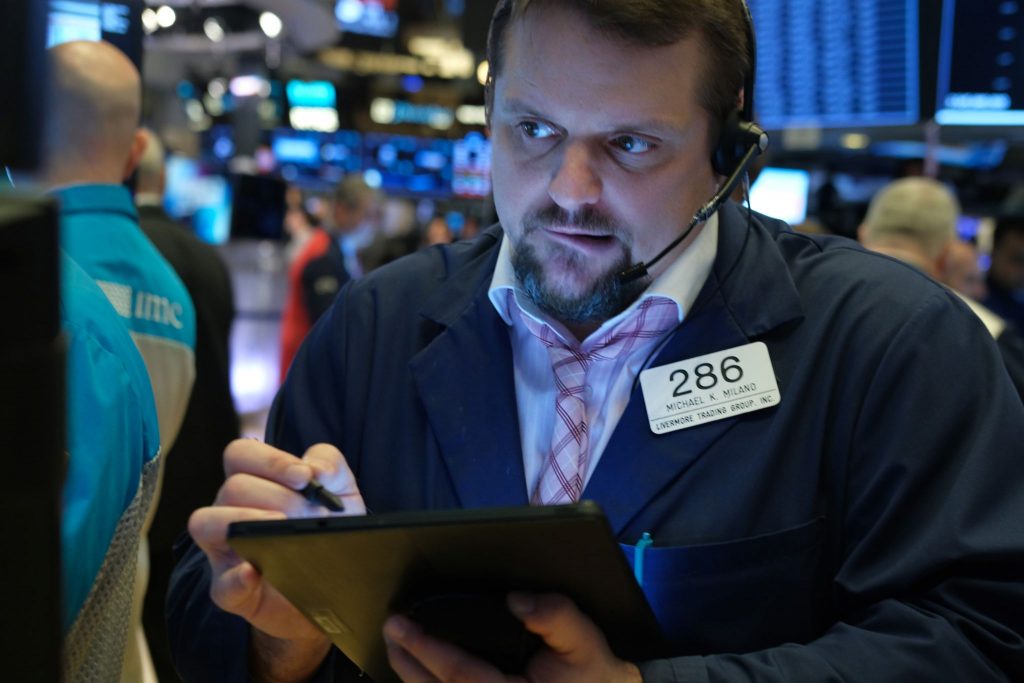Top 5 things to know in the financial market today, March 12th
March 12, 20201.2K views0 comments

President Donald Trump’s announcement of a European travel ban sends markets into a fresh tailspin, while Italy shuts down all but essential business activity to contain the coronavirus. The European Central Bank is expected to expend more of its depleted pile of ammunition supporting the eurozone economy and banking system, and oil prices take another tumble after Saudi Arabia snubs a meeting where some had hoped for an early rapprochement with Russia. Here’s what you need to know in financial markets on Thursday, March 12th.
1. Trump announces Europe travel ban and stimulus measures but nothing on U.S. testing policy
President Donald Trump imposed a 30-day ban on arrivals of people from most of Europe in an effort to stop the spread of what he called a “foreign virus” through the U.S. For reasons he didn’t explain, the measures exempt the U.K. and Ireland, both of which are already reporting sharp increases in confirmed cases.
In a 10-minute address from the White House on the day that the World Health Organisation declared the coronavirus outbreak a global pandemic, Trump also confirmed that the administration will defer this year’s April 15 tax deadline, effectively providing a grace period on $200 billion owed to the government by U.S. households and businesses. He also said he’d authorise $50 billion in loans to small- and medium-sized enterprises to ease their cash flow issues.
Read Also:
However, he announced no new measures to improve the speed and breadth of testing across the U.S. His claim that insurance companies would waive all copayment requirement for treatments was also subsequently denied by the industry association, which said the waiver only applied to testing.
Elsewhere, the National Basketball Association said it would suspend its season after a player tested positive for the virus.
2. Europe intensifies lockdown
Italy intensified its lockdown on public life, closing all non-essential commerce such as hair salons, bars, restaurants and cinemas.
The measures, taken after the country recorded another steep rise in new infections and around 170 more deaths from the virus, make a deep recession in the first half of the year all but inevitable.
The Italian government now projects a budget deficit of 2.7% of GDP this year. It remains to be seen how the euro zone will accommodate what represents a clear, if inevitable and necessary, breach of its fiscal rules. The yield on Italy’s 10-year benchmark bond rose 17 basis points to 1.36%.
Elsewhere in Europe, Denmark shut its schools and universities for two weeks, while The Times of London reported that the U.K. government will force the rest of the English soccer season to be played behind closed doors (although the Cheltenham horse racing festival carried on as normal). Italian soccer player Daniele Rugani, a team-mate of Cristiano Ronaldo at Juventus, tested positive for the virus, raising doubts that even a closed-doors regime would be tolerated by public-health authorities.
3. Global markets melt down, again
Trump’s address kicked off another wave of panicked selling, sending U.S. stocks into a bear market and triggering further heavy losses in Asian and European equity markets.
By 6:35 AM ET (1035 GMT), Dow 30 futures were down 1,211 points, or 5.1%, while the S&P 500 futures contract was down 4.8% and the Nasdaq 100 futures contract was down 4.7%, wiping out all the gains of the last two and a half years.
European stock markets suffered even more, the benchmark Stoxx 600 falling 5.7% to its lowest since 2013, with the U.K. FTSE 100 down 5.6% and the German DAX down 5.7%.
Chinese stocks outperformed, the major indices all losing less than 2.5%. However, Australia’s benchmark index fell 7.7% and the Japanese Nikkei fell another 4.4%.
4. ECB expected to act, with limited ammunition
The European Central Bank is expected to announce a package of monetary and prudential policy measures to support the economy at 8:45 AM ET (1245 GMT) after its governing council meeting.
President Christine Lagarde, who warned European leaders of a 2008-style crisis in a conference call earlier this week, will hold her press conference at 9:30 AM ET (1330 GMT).
Expectations for ECB easing have ramped up dramatically in recent days, even though it has little room to cut interest rates further and many at the bank are opposed to further quantitative easing. The market now expects not only a cut of another 10 basis points to its deposit rate, but also measures to ensure bank liquidity and the availability of credit to businesses struggling with cash flow problems. Many expect an increase in the bank’s asset purchases program too.
The ECB’s meeting comes a day after the U.K. government and Bank of England announced a package of stimulus measures spanning fiscal, monetary and prudential policy.
5. Oil tumbles again as Saudi snubs technical OPEC+ meeting
Oil prices tumbled again after Trump’s travel ban implied a further big hit to fuel demand from airlines, while Saudi Arabia again signaled its reluctance to discuss any form of market coordination in the near term, following the collapse of the so-called OPEC+ output restraint deal last week.
By 6:35 AM ET, U.S. crude futures were down 5.5% at $31.16 a barrel, while the global benchmark Brent was down 5.8% at $33.72 a barrel.
The Joint Technical Committee, a meeting of lower-level officials that usually includes participation from Russia and other non-OPEC oil exporters, was scheduled to meet via teleconference, but newswires reported Saudi Arabia would not participate. Russia had earlier signaled it would take part, raising hopes that the two exporting giants could quickly resume cooperation.
Elsewhere Thursday, Russian Energy Minister is due to meet with representatives of the Russian oil companies. OPEC member Iran, meanwhile, said it would approach the International Monetary Fund for financial assistance.
